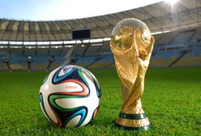 College-student-turned nun becomes famous on Internet
College-student-turned nun becomes famous on Internet
 Japanese airplanes tail Chinese warplane in China's ADIZ
Japanese airplanes tail Chinese warplane in China's ADIZ
 China applies for UNESCO listing of Nanjing documents
China applies for UNESCO listing of Nanjing documents
 Picturesque scenery in Hongcun Village
Picturesque scenery in Hongcun Village
 Japan's PM vows to resume commercial whale hunt
Japan's PM vows to resume commercial whale hunt
 Luoyang aims to become 'Chinese Culture City'
Luoyang aims to become 'Chinese Culture City'
 Century-old jade disc found confirms ancient legend
Century-old jade disc found confirms ancient legend
 A serious mind behind Chinese leader
A serious mind behind Chinese leader
 Panda Cubs to Predict 2014 World Cup Winners
Panda Cubs to Predict 2014 World Cup Winners
 China Southern Airlines flight attendants win titles in service contest
China Southern Airlines flight attendants win titles in service contest
MOSCOW/KIEV, June 17 -- Russia cut its gas supply to Ukraine Monday after the two countries failed to reach a deal amid mounting tensions in a months-long crisis.
Russia said Kiev had missed a Monday deadline to repay 1.95 billion U.S. dollars in overdue bills and Ukraine would now only get gas it paid for in advance.
Tensions between the two former Soviet neighbors escalated over the weekend after militants in Ukraine shot down a military plane and Ukrainian President Pedro Poroshenko said Monday he had ordered troops to regain control of the frontier with Russia to pave the way for a truce and peace talks.
Former President Viktor Yanukovych's refusal to sign an economic integration agreement with the EU triggered months of street protests. The crisis led to the ouster of Yanukovych who fled to Russia in February.
Crimea in southern Ukraine then broke away to join Russia following a referendum in mid-March, and militant groups in the eastern regions of Donetsk and Lugansk have since also declared their independence from Kiev.
Kiev claimed the separatist activities in southern and eastern Ukraine are backed by Russia, a charge denied by Moscow.
Meanwhile, Gazprom, Russia's energy giant, said it would cut off gas to Ukraine and introduce a prepayment system because of the chronic non-payment by Ukraine's state gas company, Naftogaz.
The decision took effect at 10:00 a.m. Moscow time (0600 GMT) Monday, several hours after representatives of Russia, Ukraine and the European Commission concluded fruitless overnight talks on the gas dispute.
Kiev wants to pay 268.5 dollars per 1,000 cubic meters of gas -- the price it had been offered when Yanukovych was in power. Last week, it agreed to pay at 326 dollars for an interim period until a lasting deal was reached.
However, Moscow had sought to keep the price at the 2009 contract level of 485 dollars per 1,000 cubic meters, but had offered a discounted price of 385 dollars.
European Union (EU) Energy Commissioner Guenther Oettinger said Moscow had declined a compromise under which Kiev would pay 1 billion dollars immediately and then make monthly repayments to Gazprom. The proposal also included a price of 385 dollars per 1,000 cubic meters in winter and about 300 dollars in summer.
Gazprom chief executive Alexei Miller told reporters it would no longer be enough for Kiev to pay part of its debt for supply to resume. Ukraine now must pay off its entire 4.45 billion dollars in debt and pay in advance for a month's deliveries, he said.
This would appear almost impossible for Ukraine, with its economy hard hit by the long-term domestic unrest.
Ukrainian Prime Minister Arseny Yatsenyuk accused Russia of deliberately blocking a deal to cause Kiev supply problems next winter, when temperatures plunge and heating needs increase.
Yatsenyuk also linked Russia's move to its political intentions. "It is yet another step against the Ukrainian state and against Ukrainian independence," he said.
Meanwhile, Russian Prime Minister Dmitry Medvedev claimed part of the Ukrainian leadership was "losing adequacy," citing Yatsenyuk's refusal of Russia's earlier preferential gas price offer and the "paranoid behavior" of acting foreign minister Andrei Deshchytsa, who made insulting remarks about Russian President Vladimir Putin at the weekend.
Medvedev, however, said Russia was still open to dialogue.
"If our colleagues in Ukraine start to hear (our) reasoning better (and) return to a discussion of ... highly concessional and very preferential offers made by Russia, I think we will be ready to continue talks," he said. "But of course, under the condition that the debt is settled in full."
Gazprom said it had filed a lawsuit at the Stockholm arbitration court demanding Ukraine pay off the gas debt. Naftogaz, in turn, said it also brought litigation at the same court to contest Gazprom's pricing.
The Ukrainian company said it was also seeking to recover about 6 billion dollars "overpaid" to Gazprom since 2010 due to the "unfair" gas contract.
The gas cutoff will not affect Ukraine immediately as it has at least 12 billion cubic meters in storage, enough to meet its and the EU's needs over the summer.
But analysts say it could disrupt Europe's long-term energy supplies as EU consumers get about a third of their gas from Russia and around half of it through pipelines that cross Ukraine.
Gazprom promised it would continue to supply gas to consumers in other parts of Europe at full volume, but warned the European Commission of potential interruption in gas transit through Ukraine. It also urged Ukraine to abide by its obligations and ensure a smooth transit of gas to the EU.
 Super daddies in 2014 World Cup
Super daddies in 2014 World Cup Rebuilding the silk road
Rebuilding the silk road College girls take stylish photos to help enrollment
College girls take stylish photos to help enrollment Top 10 Chinese products scoring World Cup goal
Top 10 Chinese products scoring World Cup goal PLA units hone their tank combat skills
PLA units hone their tank combat skills Attendants shine at Xinjiang-Lanzhou high-speed rail
Attendants shine at Xinjiang-Lanzhou high-speed rail Jiuzhai Valley - fairyland of the world
Jiuzhai Valley - fairyland of the world Can't take eyes off national teams in World Cup
Can't take eyes off national teams in World Cup Beijing strips off to celebrate summer
Beijing strips off to celebrate summer
 Top 20 hottest women in the world in 2014
Top 20 hottest women in the world in 2014  China's top 10 representative architectures
China's top 10 representative architectures Cute animals' leisure summer in zoo
Cute animals' leisure summer in zoo Exhibition of the Buddha held in Tibet
Exhibition of the Buddha held in Tibet Grandpa Kang takes Gaokao for 14th time
Grandpa Kang takes Gaokao for 14th time Incredible animal migration in Xinjiang
Incredible animal migration in Xinjiang Day|Week|Month